Sentence Structure Teaching Resources
Teach students the elements of sentence structure this school year with printable worksheets, sentence-building activities, sorting games and more elementary school teaching resources designed to help extend your students' understanding of how to write clear and concise sentences that follow the rules of English grammar.
This extensive collection of teaching resources has been created by teachers for teachers like you. Aligned to the Common Core curriculum, the ELA collection includes editable worksheets and teaching presentations and more to save elementary teachers time on lesson planning.
Created by expert teachers, each resource in this sentence collection has been carefully reviewed and curated by our team. That means it's ready to use in the classroom! You'll even find editable resources, plus differentiated options.
New to teaching about sentence structure, or just looking for fresh ways to engage your students? Read on for a primer from our teaching team!
English Sentence Structure Explained
From subjects to predicates, objects to clauses, the English language is packed with rules specific to sentence structure that students need to learn on the way to becoming proficient writers.
Ready to break down how to build a sentence in English and look at some examples? Let's go!
Subject
The subject of a sentence is the noun or pronoun that performs the action or is described in the sentence.
For example, in the sentence "Jaquan did his homework," Jaquan is the subject.
Predicate
The predicate of a sentence expresses the action or state of being in a sentence.
Let's go back to the sentence "Jaquan did his homework." In this case, did is the predicate.
Object
The object of a sentence is a noun or pronoun that receives the action of the verb.
For example, "homework" would be the object in "Jaquan did his homework."
Complement
The complement of a sentence is a word or phrase that completes the meaning of a sentence.
The complement can be a direct object, indirect object, or subject complement.
For example: "a doctor" in "She became a doctor."
Modifier
A modifier in a sentence provides additional information about a word or phrase in the sentence. It can be an adjective or an adverb. Example: "kind" in "She was a kind teacher."
What Are Clauses?
Clauses are groups of words containing a subject and a verb. They're important to understand when learning sentence structure. After all, one kind of clause is a sentence!
There are two main types of clauses:
- Independent Clause — An independent clause can stand alone as a complete sentence because it expresses a complete thought. For example: "I did all of my homework."
- Dependent Clause — A dependent clause cannot stand alone as a sentence because it does not express a complete thought. It relies on an independent clause to make sense. Example: "When I went to the store," (Dependent clause) "I bought an apple." (Independent clause). Dependent clauses can be paired with independent clauses to build sentences.
- Free Plan
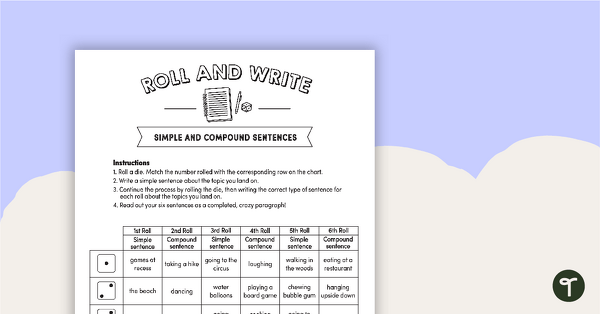
Roll and Write - Simple and Compound Sentences
Practice writing simple and compound sentences with our Roll and Write activity.
- Plus Plan
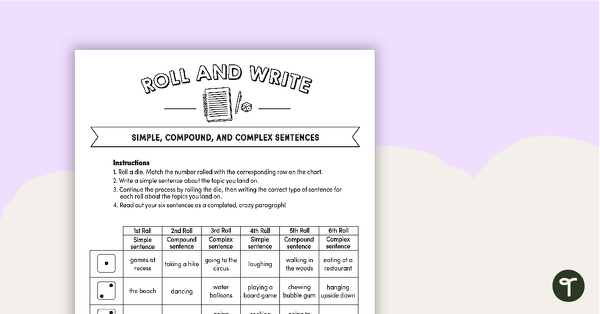
Roll and Write – Simple, Compound, and Complex Sentences
Practice writing simple, compound, and complex sentences with our Roll and Write activity.
- Plus Plan
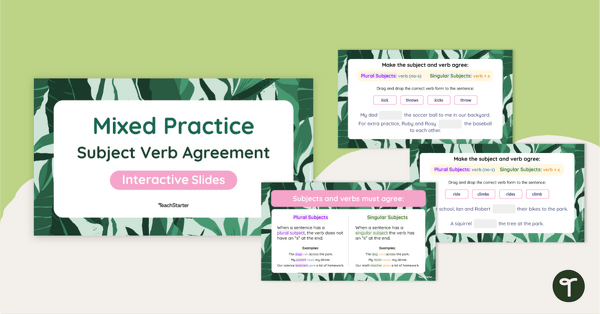
Subject-Verb Agreement Digital Learning Activity
Improve sentence structure and grammar skills with a Google Interactive resource that focuses on a range of subject-verb agreement rules.
- Plus Plan
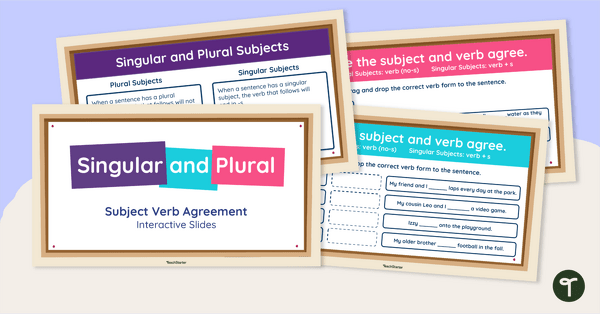
Singular/Plural Subject Verb Agreement Google Slides Interactive Activity
Improve sentence structure and grammar skills with a Google Interactive resource that focuses on singular and plural subject-verb agreement.
- Plus Plan
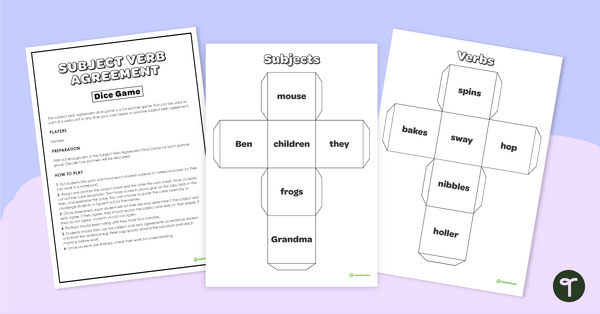
Subject Verb Agreement Dice Game
A dice game for pairs of students to help practice subject verb agreement and sentence writing.
- Plus Plan
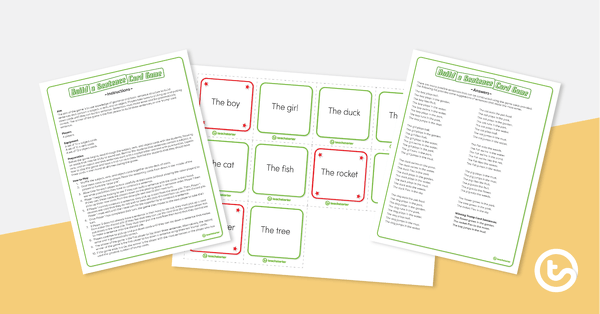
Build a Sentence Card Game
A fun and engaging card game that focuses on building simple sentences that include a subject, verb, and object.
- Plus Plan
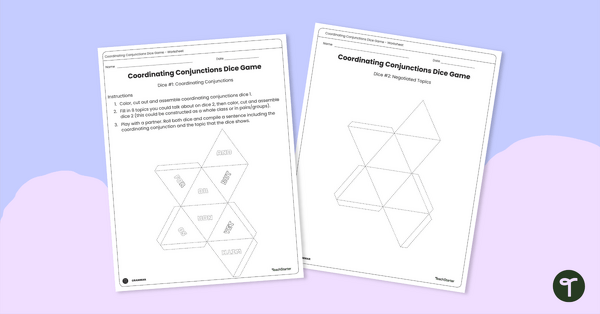
Coordinating Conjunctions Dice Game
Use this hands on activity for students to create two 8 sided-dice and write compound sentences using coordinating conjunctions.
- Plus Plan
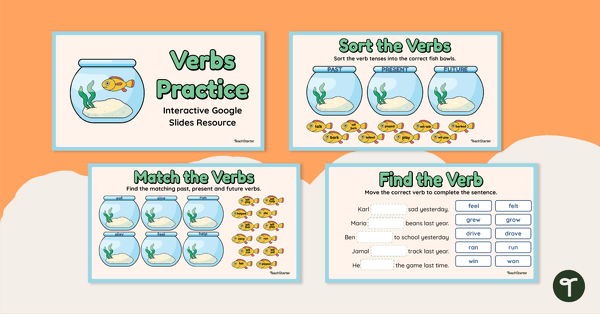
Google Slides Interactive- Past, Present, and Future Verbs Activity
Develop student skills using the correct forms of past, present, and future tense verbs with this Google Slides Interactive activity.
- Plus Plan
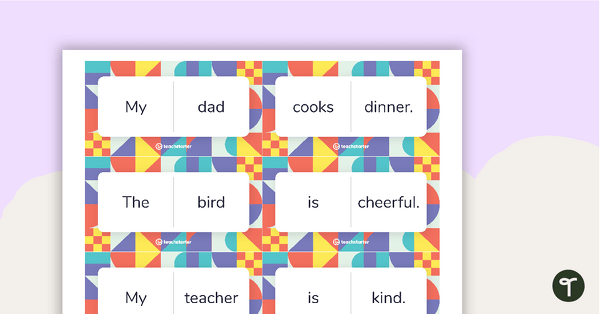
Simple Sentence Dominoes - Set 1
A set of 30 dominoes to assist younger students with building simple sentences.
- Plus Plan
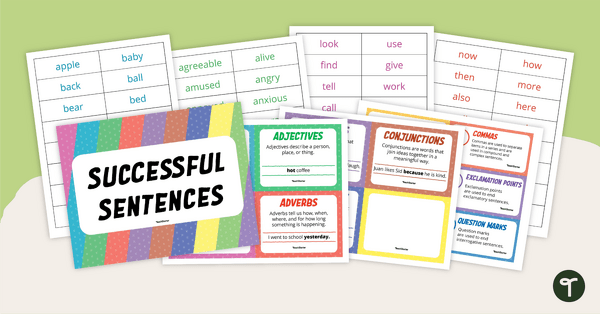
Successful Sentences – Sentence Construction Cards
Word cards for constructing complex sentences.
- Plus Plan
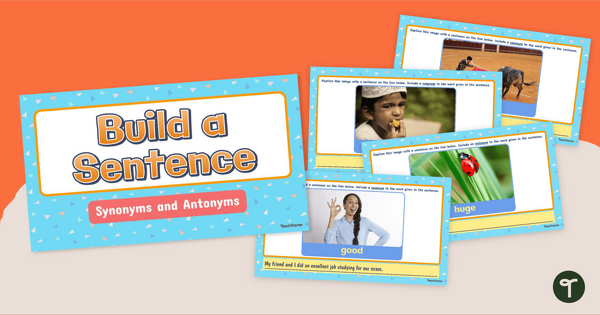
Synonyms and Antonyms - Build a Sentence Interactive
Build strong vocabulary and sentence-writing skills with an interactive synonyms and antonyms sentence-building activity.
- Plus Plan
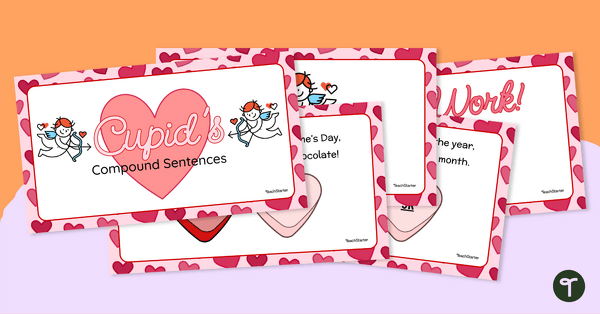
Cupid's Compound Sentences Valentine's Day Activity
Build some sweet sentence writing skills using a fun Valentine’s Day Compound Sentence interactive activity.
- Plus Plan
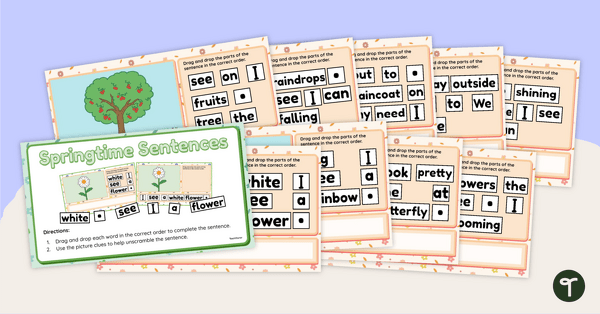
Springtime Sentence Building - Interactive Activity
Build a strong sentence-writing foundation with an interactive spring sentence-building activity.
- Plus Plan
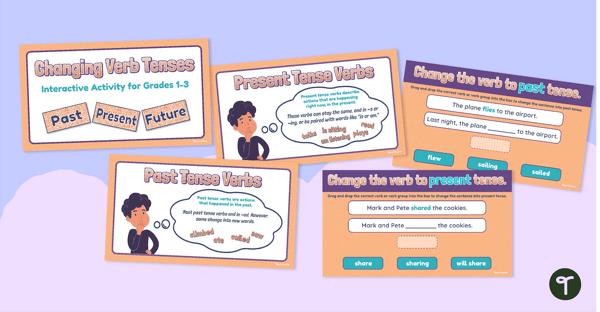
Changing Verb Tenses Interactive Google Slides Activity
Provide your students with a digital learning environment to practice using past, present, and future tense verbs.
- Plus Plan
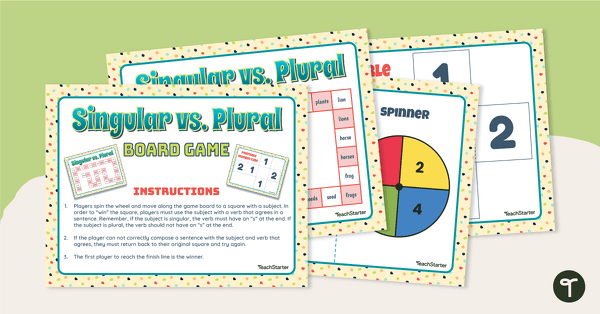
Singular/Plural Subject Verb Agreement Board Game
Improve sentence structure and grammar skills with a board game focusing on singular and plural subject-verb agreement.
- Plus Plan
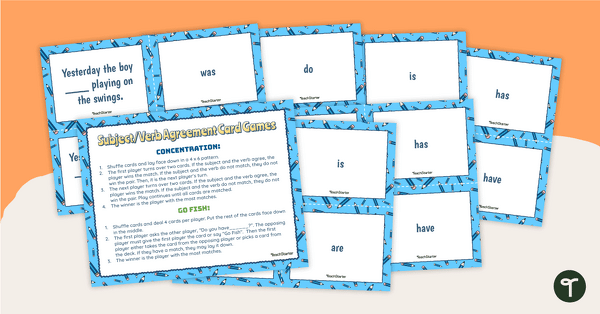
Subject-Verb Agreement Concentration & Go Fish Game
Improve student sentence structure with a card game focusing on usage of correct subject-verb agreement in sentences.
- Plus Plan
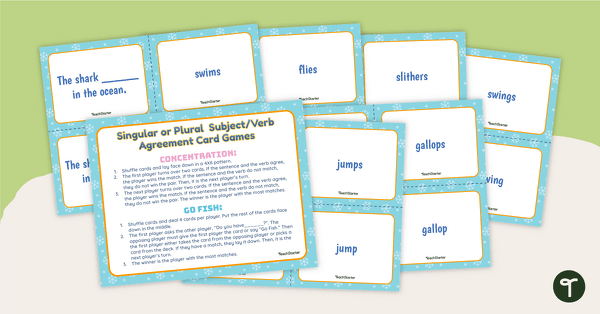
Singular/Plural Subject Verb Agreement Card Game
Provide students with additional grammar practice with a card game focusing on singular and plural subject-verb agreement.
- Plus Plan
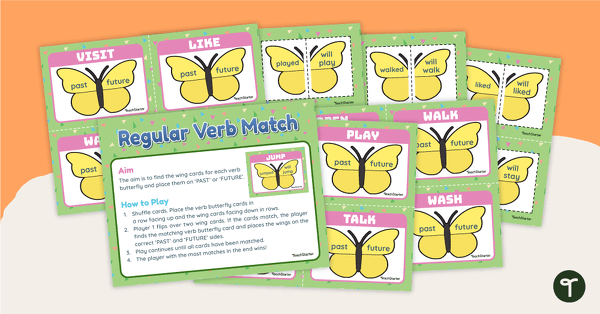
Past, Present, and Future Verb Tense Matching Activity - Regular Verbs
Practice using past, present, and future tenses of regular verbs with a butterfly matching activity.
- Plus Plan
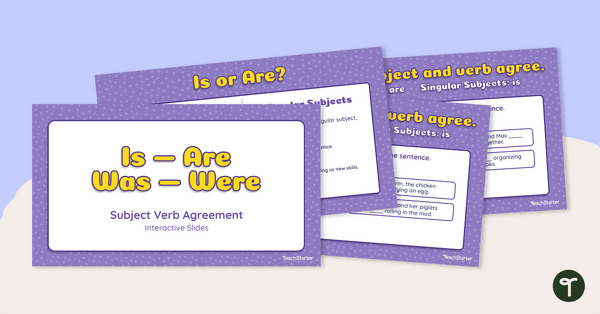
Is/Are, Was/Were Subject Verb Agreement Interactive Activity
Embed subject-verb agreement practice into digital learning with this Google Slides Interactive activity.
- Plus Plan
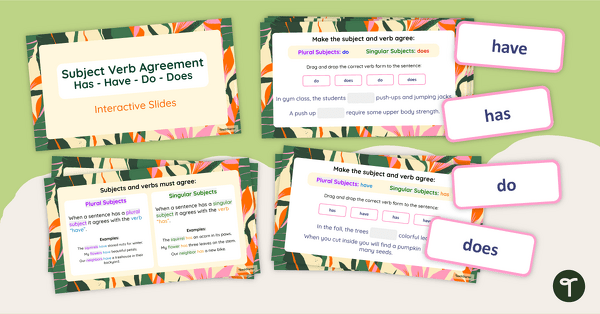
Has/Have, Do/Does Subject Verb Agreement Interactive Activity
Practice building sentences using has, have, do, and does with this Google Slides Interactive subject-verb agreement activity.
- Plus Plan
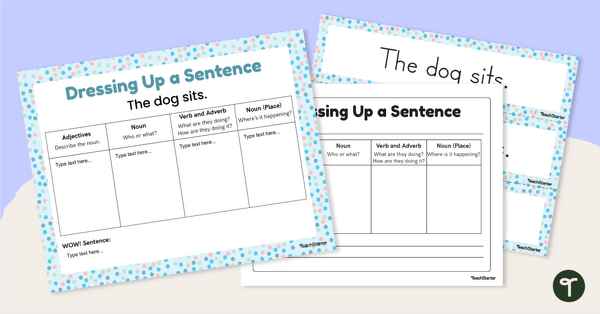
Dressing Up A Sentence - Interactive or Printable Activity
Encourage students to add more descriptive language into their sentence writing with this activity.
- Plus Plan
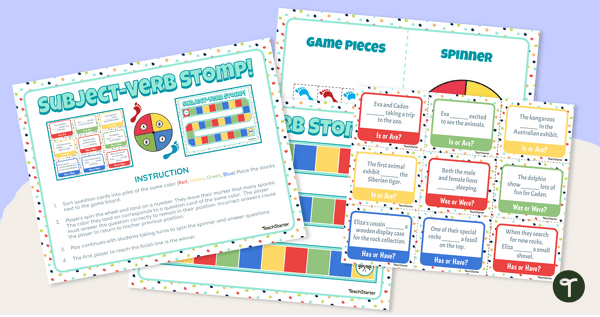
Subject-Verb Stomp! Verb Agreement Board Game
Play a game of Subject-Verb Stomp! to engage your learners and build better sentence-writing skills.
- Plus Plan
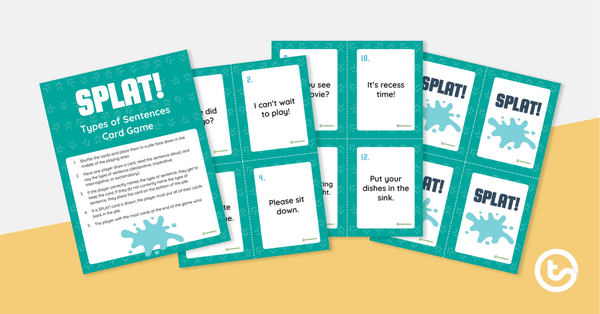
SPLAT! Types of Sentences Card Game
Practice identifying the 4 kinds of sentences (interrogative, declarative, imperative, or exclamatory) with this set of 20 task cards.
- Plus Plan
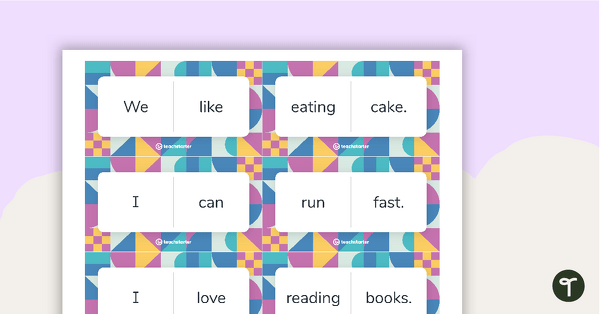
Simple Sentence Dominoes - Set 3
A set of 30 dominoes to assist younger students with building simple sentences.
- Plus Plan
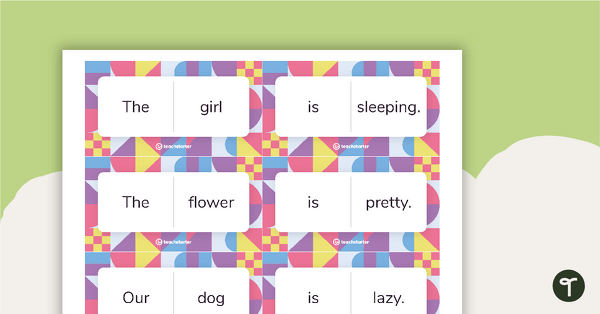
Simple Sentence Dominoes - Set 2
A set of 30 dominoes to assist younger students with building simple sentences.
- Plus Plan
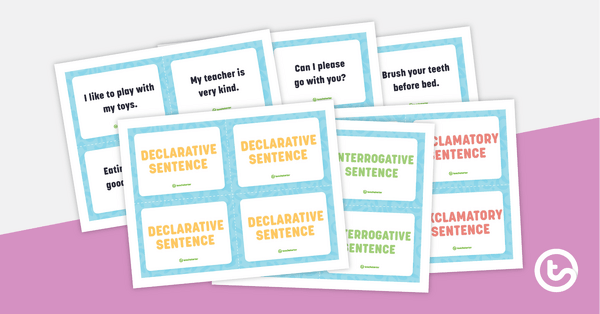
Declarative, Interrogative, and Exclamatory Sentence Match-up Cards
A set of match-up cards to use when teaching younger students about the types of sentences.